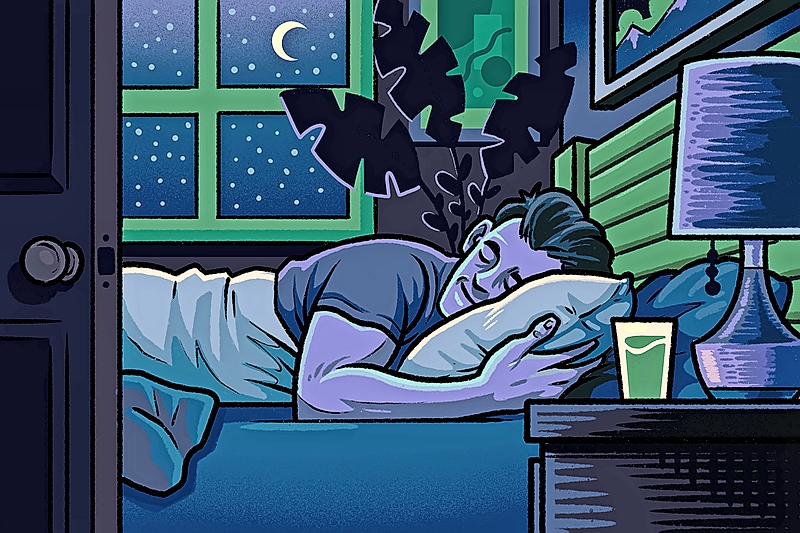Pillow Talk
By Mark Loehrke
Appears in the June 2022 issue.

A long with diet and exercise, consistent, quality rest is one of the pillars of a healthy lifestyle. “I truly believe a great night’s sleep is the solid foundation that helps support you in making positive choices during the day,” says Tracy Miller, founder and CEO of Inventive Sleep, Inc., a bedding products company based in Naperville. “When someone doesn’t get enough quality sleep, they tend to start the day fatigued, their motor skills are off, they feel irritable and overly emotional, and they have difficulty focusing and making decisions.”
Studies show that sleep deprivation can also weaken one’s immune system, while increasing one’s risk of cancer, high blood pressure, and heart disease.
You can buy all sorts of sleep aids, but a good night’s sleep goes beyond what’s on the bed and in the medicine cabinet. While Miller believes in the importance of quality bedding products, she also understands that they’re just one piece of the sleep puzzle.
Don’t neglect the less tangible and more holistic keys to getting better quality sleep—including Miller’s ideas of practicing meditation to get into a more peaceful mindset, stretching before bedtime, having a notepad to jot down thoughts to get them off your mind, and turning off all lights and electronic devices. “Drifting peacefully off to sleep is an experience you should look forward to every night,” she says.
HOW TO CATCH the best Zzzzzz’s
Tip 1: Make your bed in the morning. Mom was right—a well-made bed presents a welcoming, peaceful stage come sleep time.
Tip 2: Establish a positive and consistent nighttime routine. Think of the hour before bed as the time for some daily self-care, whether that means taking a bath, jumping into comfy pajamas, or snuggling in a cozy blanket for some reading.
Tip 3: Create the sleep environment you crave. Optimize each layer of bedding to complement your sleep preferences.
Bedtime Stories
While a good night’s rest rejuvenates the body, sharpens mental acuity, and improves one’s emotional outlook, sleep itself is sometimes misunderstood. Sleep-product designer Tracy Miller shares a few sleep myths.
Myth 1: You can train yourself to function on less sleep.
That’s technically true, but the body still requires an adequate night’s rest. And since when is just functional the goal anyway?
Myth 2: You need less sleep as you age.
The need for a full night’s rest knows no age limit. The challenge as one gets older is uninterrupted sleep amid increasing joint pain and/or other medical conditions.
Myth 3: A glass of wine is good for sleep.
That vino-induced feeling of relaxation is actually slowing down your brain’s communications with the rest of the body, reducing its ability to move between sleep cycles—and especially suppressing the REM stage where the brain is most actively working to restore mental and emotional well-being.


